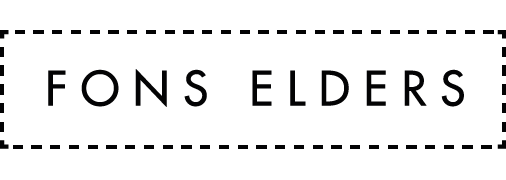Review on Islam Unknown
Reviewed by Barbara J. Walter, Longmont Public Library, Longmont, CO
Highly Recommended
Date Entered: 11/6/2012
“The kind of work you have devoted yourself to doing is so very essential for working through the high levels of ignorance, intolerance, or indifference that mark so much of the debate on Muslims in Europe. To complicate and humanize people’s understanding of who Muslims are or what we think about our religion and other issues is really a gift at such a time.” Asma Barlas, from a letter to Fons Elders, April 19, 2010
In Islam Unknown, Dutch philosopher Fons Elders has as his focus the rich diversity of thought in contemporary Islam, diversity with which many Westerners are unfamiliar. Through a series of eight engaging conversations with Muslim scholars from a variety of disciplines, Elders strives to complicate and humanize viewers’ understanding of who Muslims are and what they think about Islam.
Asma Barlas, professor of political studies at Ithaca College, reminds viewers that Islamophobia is not new in the West, and that if meaningful dialog is desired, Europeans must start with respect for what Muslims hold sacred. Casting aspersions on Allah, the Prophet or the Quran (as in the notorious Danish editorial cartoons) does not encourage civilized discourse. Because the Qur`an describes God as uncreated, without sex or gender, Barlas contends that Islam teaches fundamental equality between woman and man. Sadly, 1400 years of interpretation have taken Islam very far away from this foundational concept.
Author Nasr Abu Zayd asserts that colonialism is responsible for Westerners stilted view of Islam, and Muslims’ misconceptions about the West. Recent wars in Iraq and Afghanistan have not helped dispel confusion on either side. The Quran, he says, is a sacred place where communication can take place between human and divine. Multiple interpretations of scripture are possible, even necessary. If you adhere to the rational interpretation, you are looking into the Qur’an with one eye. If you adhere to the literal interpretation, you are looking with the other eye. You should open both eyes. The real faith is the faith that believes in uncertainty, in ambiguity.
Abdullahi Ahmed An-Na`im, the Charles Howard Candler Professor of Law at Emory University, believes human beings are works in progress and that religion marks their journey from finite to infinite. Belief and apostasy are two sides of the same coin because the possibility of belief logically requires the possibility of unbelief. Therefore, the state must be absolutely neutral on religion. A truly secular state stands on a tripod of constitution, human rights, and citizenship.
Amna Nusayr, who teaches at Al-Azhar University in Cairo, tackles two contentious subjects, sharia and jihad. Jihad takes two forms, she explains: internal or spiritual struggle, and external, which is righteous self-defense. While affirming that hating Christians or Jews simply because of their religion is wrong, she insists that hating and resisting those who destroy home, family or country is justifiable.
Religious scholar Reza Aslan speaks of Islam as the quintessential other in Europe and claims that the current resurgence of nationalism there is a reaction to Islam. Muslims have a much easier time living in the U.S. than in Europe. The rage young European Muslim men feel is understandable, and jihadists attempt to capitalize on that rage by connecting local grievances to global ones: Look, your people are under siege! To channel that anger constructively, focus must be brought back to the local level.
Director of the Center for Global Humanities and Associate Provost for Global Initiatives at the University of New England, Anouar Majid argues that a society without multiple beliefs and points of view will invariably stagnate. Society needs heretics to create openness and dialog. Europe gained its identity in the act of opposing Islam; the nation-state of Spain established itself at the expense of its Muslim population, expelling a half million people from the country in 1609 on the basis of race and faith. We need to dig deeply into European history to understand the clash between Christianity and Islam.
Ömer Özsoy, professor in Islamic Theology at Goethe University, considers another controversial issue: the headscarf. Özsoy reminds his Western audience that there is a distinction between the divine dimension of revelation and human language, that language being Arabic in the case of the Quran. Insight into divine revelation remains a human affair. We are limited, God is unlimited. It is important to remember that the Quran is a work of its time; current debate surrounding the veiling of women and girls has to be about human rights, not about the Quran. (Note: this conversation is in German, with English subtitles.)
Mehmet Asutay teaches at the Institute for Middle Eastern and Islamic Studies in the School for Government and International Affairs of Durham University. He points to the current global economic meltdown as a great example of financing divorced from real-world economics. Trust is an essential component of a thriving economy, and it is built on social connections between people, banking institutions and the government. An Islamic moral economy has two dimensions: the horizontal dimension, which is equality of all, regardless of social background, class or beliefs; and the vertical dimension, which is equality of all before God and in relation to God. The goal in a moral economy is achieving good for self and others, rather than at the expense of others.
Each interview opens with a brief biography of the guest, and map of his/her home country. Though just under 30 minutes in length, there is a remarkable depth and breadth to each of the eight conversations. Elders is a skillful interviewer, posing thoughtful questions and then getting out of the way of his guest’s response. An excellent classroom resource, appropriate especially to academic libraries supporting religious and Middle Eastern studies, Islam Unknown is a strong choice for public libraries as well for anyone who enjoys Bill Moyers’ series on faith and ethics will find much food for thought here.

